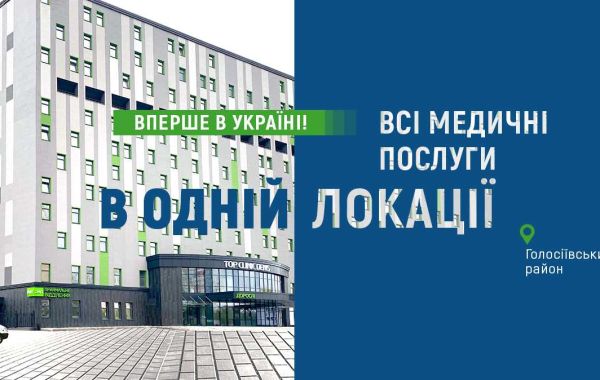Myths About Varicose Veins. Explained by a Phlebologist from TOP Clinic DENIS
Introduction
What is Varicose Vein Disease?
Myth 1: Varicose veins are purely a cosmetic defect
Myth 2: Varicose veins are a chronic disease that always returns
Myth 3: Varicose veins can be cured with pills, ointments, compression garments, or leeches
Myth 4: Varicose veins in pregnant women are normal
Myth 5: Varicose veins can only be treated with surgical incisions
Myth 6: After the removal of varicose veins, the load on healthy veins increases
Myth 7: After varicose vein surgery, you need to stay in the hospital and have a long recovery period
FAQs
Introduction
Varicose vein disease affects many people worldwide, with every 4th or 5th person in Ukraine being no exception. This condition impacts not only appearance but also quality of life, causing significant discomfort and posing serious complications. There are many myths about varicose veins that often mislead people. Today, Tatiana Kozyr, a phlebologist from TOP Clinic DENIS, will help dispel these myths and explain the truth about varicose vein disease.
What is Varicose Vein Disease?
Varicose vein disease is the pathological dilation of veins, where normal blood flow is disrupted. This leads to venous insufficiency, where veins cannot effectively return blood to the heart. The causes of varicose veins are varied: genetic predisposition, sedentary lifestyle, excess weight, hormonal changes, etc.
Myth 1: Varicose veins are purely a cosmetic defect
It is often believed that varicose veins are only a cosmetic issue that does not require treatment. This is not entirely true. Varicose vein disease has six stages according to international classification. Only the first stage can be considered a cosmetic problem. Starting from the second stage, varicose veins can lead to serious complications such as thrombophlebitis, trophic ulcers, and pulmonary artery thrombosis. Varicose veins can also be very painful, significantly affecting quality of life. Therefore, it is important to consult a doctor for professional advice and treatment.
Myth 2: Varicose veins are a chronic disease that always returns
Yes, varicose vein disease is chronic and can recur over time. However, this does not mean that treatment is futile. Thrombosis of a varicose vein can have an acute course, requiring immediate medical attention. Proper treatment and preventive measures help reduce the risk of recurrence and improve quality of life. Following the doctor's recommendations, taking medications to improve blood circulation, using compression garments, and leading a healthy lifestyle are key aspects.
Myth 3: Varicose veins can be cured with pills, ointments, compression garments, or leeches
This myth is quite common but not true. Although pharmacotherapy (pills, ointments) and compression therapy (compression garments) can help alleviate the symptoms of varicose veins, they cannot completely cure the disease. As for leeches, this method is not evidence-based and not recommended by doctors. Modern treatments for varicose veins include minimally invasive procedures such as laser coagulation and sclerotherapy, which are more effective and safe.
Myth 4: Varicose veins in pregnant women are normal
Varicose veins in pregnant women are a common problem, but this does not mean it is normal for every pregnant woman. During pregnancy, blood volume increases and hormone levels rise, which can lead to vein dilation. It is important to prevent the development of varicose veins through preventive measures such as physical activity, wearing compression garments, and maintaining a healthy lifestyle.
Myth 5: Varicose veins can only be treated with surgical incisions
Today, the treatment of varicose vein disease has become much simpler and less traumatic. Previously, treatment involved removing the vein with incisions and scars. Now, modern methods such as laser coagulation are used. This method does not require incisions, meaning no scars. The procedure is painless and provides excellent aesthetic results.
Myth 6: After the removal of varicose veins, the load on healthy veins increases
On the contrary, after the removal of varicose veins, the load on healthy veins decreases. Varicose vein disease disrupts blood circulation and increases the load on the deep venous system. After laser treatment, blood flow normalizes, reducing the load on healthy veins. The doctor carefully assesses the condition of the vessels before and after the operation and provides recommendations for further treatment and prevention.
Myth 7: After varicose vein surgery, you need to stay in the hospital and have a long recovery period
Modern methods of treating varicose vein disease, including laser coagulation, require minimal hospital stay. Usually, after surgery, the patient can stay in the clinic for only a few hours, and longer stays depend on the patient's desire and the type of anesthesia. The rehabilitation period is individual and depends on the severity of the disease, but patients usually return to normal life within a month.
FAQs
What are the first signs of varicose vein disease?
The first signs include heaviness in the legs, swelling, pain, and visible enlarged veins.
Can surgery be avoided with varicose veins?
Yes, at early stages, conservative treatment and prevention can be used to avoid surgery.
How often should compression garments be worn?
Compression garments should be worn according to the doctor's recommendations, usually daily during active hours.
Do folk remedies help in treating varicose veins?
Folk remedies may temporarily relieve symptoms but are not effective in treating varicose vein disease.
Is it possible to do sports with varicose veins?
Yes, physical activity is important, but you should choose moderate sports and consult with a doctor.








